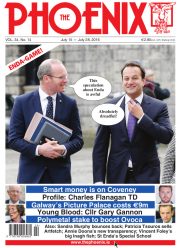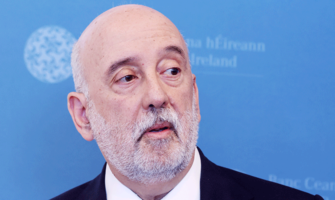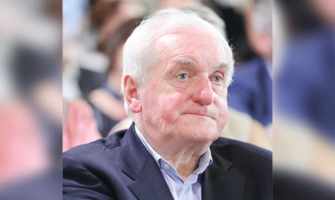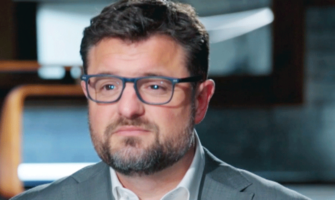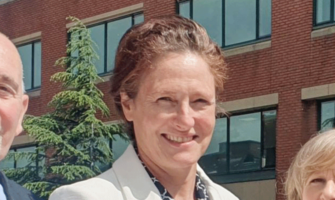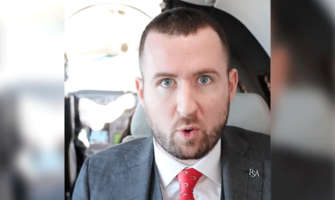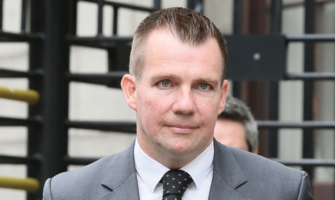
Gary Gannon
Councillor Gary Gannon (29) has had a meteoric rise in Dublin Central, from the margins of the Tony Gregory Group of independents to a Dublin City Council (DCC) seat in 2014, to a near victory as the Social Democrat candidate in the 2016 general election. Gannon quickly established an image of himself as an independent community activist, in the typical mould of the energetic inner-city Dub campaigner, before joining the Soc Dems in September 2015. As his nascent party struggles to develop its national structures, Gary now faces the double task of developing a local party group as well as his own presence across the constituency.
Gannon comes from a working class family, based in Portland Place in the inner city. His mother, a former street-seller who works with the women’s shelter in Sheriff Street, is a well-liked figure around the area and his two brothers, Brian and Paul, have both played for Shelbourne FC. The brothers recently took over the lease on Ned Scanlon’s pub, a famous early house near Pearse Street, and last week reopened the Sunset House pub in Summerhill, where dissident republican Michael Barr was shot dead in April, a victim of the Kinahan-Hutch gang feud. Gary graduated from Trinity in 2012 with a degree in history and politics, having entered through the Trinity Access Programme. He shadowed Sinn Féin’s David Cullinane for a time through an internship scheme while completing a master’s in DIT.
Gannon was involved with the Gregory Group in Dublin Central before a row over selection led him to go it alone at the 2014 locals. He had canvassed for Maureen O’Sullivan during her successful 2011 Dáil campaign and had been on the periphery of the Group since then. The Group briefly toyed with the idea of running two candidates for the North Inner City area in 2014, but settled on one. Gannon lost out on the nomination to the incumbent, Mel Mac Giobúin, who had been co-opted to the Gregory DCC seat in 2012.
Gannon ran a good campaign in 2014, but an incident between himself and Mac Giobúin threatened to upset his progress. Mac Giobúin, believing that some of Gary’s more zealous supporters had been deliberately obstructing his posters, took down a Gannon poster that was blocking his own. Mel called to Gary’s family household after a confrontational phone call, resulting in something of a dramatic encounter with the Gannons. To add insult to injury, Mac Giobúin lost his seat, coming 13th out of 19 candidates in the eight-seater, while Gannon took the sixth seat in a serious blow for the Gregory Group.
Interviewed last year by The Dublin Inquirer – before he found his calling with the Soc Dems – Gannon explained that even after winning the council seat, his politics weren’t fully formed. This is perhaps truer than Gary let on, because after taking his seat, he approached Fianna Fáil to see if he could come on board. Mindful of his impressive local campaign, FF were most welcoming and he met with party brass in Dublin. After making the initial approach, the ball was left in Gannon’s court but it seems he soured on the idea. He denies broaching membership with FF, but perhaps he misunderstood the nature of the discussions. He does admit that around the time of the local elections, he had a chat with Sinn Féin, which came to nothing.
In what was a further blow for the Gregory Group, Tony Gregory’s brother Noel initially supported Gannon, instead of O’Sullivan, ahead of this year’s general election. But when Gary joined the fledgling Soc Dems, Gregory switched his support to former Lord Mayor of Dublin and ex-Sinn Féin councillor, Christy Burke. Gannon said at the time that he was happy to stand on his own merits and that he still considered Noel a friend.
For a first-time Dáil candidate, Gannon’s performance in three-seat Dublin Central was impressive. In fact, he was set to take the third seat until the last round when he was pipped by old rival, Maureen O’Sullivan. SF’s Mary Lou McDonald was always considered a cert for the first seat, and she surpassed the quota on the ninth count. Despite pre-election fears, Fine Gael minister Paschal Donohoe retained his seat. The interesting battle was always going to be for that third seat and it looks likely to stay that way for a while.
Gannon went up against popular independents like Burke and O’Sullivan as well as FFer Mary Fitzpatrick and Labour’s Joe Costello, so his performance, buttressed by his transfer-friendliness, was a real surprise. He ran another good campaign, no doubt aided in its professional sheen by the funds the Soc Dems have been gifted by the likes of millionaire Michael Chadwick (see The Phoenix 06/05/16).
After coming fifth in first preferences, Gannon jumped into third place in the sixth round and stayed there until the very last round. O’Sullivan enjoyed big gains in the penultimate round from the elimination of Mary Fitzpatrick but Gannon gained too, forcing Burke out. In the final round, the Gregory Group candidate pulled into third place ahead of Gannon and got her revenge, receiving the bulk of Burke’s transfers and winning by 300 votes.
Gannon’s performance showed that O’Sullivan’s grip on her seat is far from tight, and the Soc Dems would be hopeful that he could edge her out should an election be called in the coming months. However, with FF surging in the polls, Gannon will need to treat veteran Mary Fitzpatrick with the respect that her party’s current popularity seems to demand.
The Soc Dems now have to quickly put in place the political infrastructure to formalise their position on the national stage. The party managed to return its three TDs in February using the existing constituency supports that they carried over from their past political lives. But to take advantage of the vacuum caused by the decline of Labour, future candidates like Gannon have to prioritise building their branch structures and bringing new members into the fold ahead of an election that could happen any time. The party has begun this process in some constituencies, but mainly where the three Soc Dem TDs – Stephen Donnelly, Catherine Byrne and Roisin Shorthall – were already in place. A branch structure does exist in Gannon’s Dublin Central, but it’s in the very early stages and seems to still be made up of Gannon’s own team of supporters. 17-year-old Leah McCabe was made vice chairperson of the Soc Dems in Dublin Central last month.
The challenge lies in the fact that it’s Gannon’s individual work and personal brand, not necessarily his party’s standing, that will put him over the old-hand candidates in Dublin Central. But if Gannon fails to win a seat there – in a left-leaning, working class constituency where he has a natural base of support – it will signify the Soc Dems’ inability as a party to get beyond the three individual personalities who now front it.



